Over the past time, the work of protecting and taking care of people's health has always received special attention from the Party and the State. Documents and Resolutions of Party Congresses over the periods, Resolutions of the Central Executive Committee, Conclusions and Directives issued by the Politburo and the Secretariat all contain content expressing policies, guidelines and priority goals in caring for, protecting and improving people's health.
Resolution No. 72-NQ-TW of the Politburo on a number of breakthrough solutions in the work of protecting, caring for and improving people's health, which was recently issued on September 9, 2025, is assessed to have proposed "breakthrough" tasks and solutions to remove and unblock bottlenecks to meet people's health care needs.
Motivation for grassroots healthcare to make a breakthrough
Deputy Minister of Health Do Xuan Tuyen emphasized that Resolution No. 72 of the Politburo issued specific instructions on a number of key issues. First, thoroughly grasp the motto "prevention is better than cure." Second, bring health services closer to the people, including high-tech services. Third, establish health records for all people, organize annual health check-ups. Fourth, gradually move towards free health services for all people. Fifth, improve the quality of primary health care, ensuring that all people have access to fair and timely services.
The Resolution has determined a strong shift from a mindset focused on medical examination and treatment to proactive disease prevention. Correctly identifying the position and role of preventive medicine, primary health care, and traditional medicine; ensuring early, remote, and grassroots disease prevention; comprehensively improving the quality of health care services, developing specialized health care, and ensuring health security. In addition, there are breakthrough policies and mechanisms in mobilizing and effectively using all resources to improve the quality of protection, care, and improvement of people's health; promoting the development of science, technology, and digital transformation in health; strongly reforming health finance, ensuring the effectiveness and sustainability of health insurance policies.
According to Resolution 72, in the period of 2025-2030, each year localities will rotate, transfer, and mobilize at least 1,000 doctors to work for a limited time at commune health stations, supplementing regular doctors at health stations. 100% of commune-level health stations will be invested in facilities, medical equipment, and human resources according to their functions and tasks. By 2027, each commune health station will have at least 4-5 doctors.
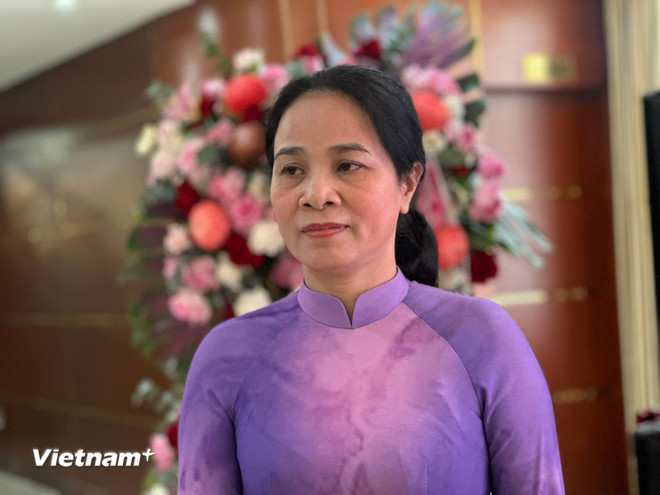
Ms. Do Thi Nguyen - Director of Dong Nai Province Department of Health said that Resolution 72 has many breakthrough policies, including the development of primary health care. This will be a great motivation for doctors and medical staff at the primary level to work with peace of mind in order to narrow the gap in quality of medical examination and treatment between health care levels. Thereby, building a fair health care system, meeting the increasing demand for primary health care of the people.
According to Dr. Do Thi Nguyen, in order for the grassroots health sector to promote its role as the closest to the people and provide the best primary health care for the people, the leaders of the Dong Nai Department of Health have developed plans for the province's frontline hospitals to support the training of human resources for grassroots health. In addition, the department coordinates with medical universities to organize training to improve the expertise and skills of grassroots health workers. From there, it helps to improve the human resources of grassroots health sectors in all aspects.
Lifecycle health management
Resolution 72 sets out clear goals for people to access quality health services, aiming for comprehensive health care. From 2026, people will receive free periodic health check-ups or screenings at least once a year, and will have an electronic health record to manage their health over their lifetime, gradually reducing the burden of medical costs. By 2030, people will be exempt from basic hospital fees within the scope of health insurance benefits according to the roadmap.
Doctor Nguyen Thi Loan - Deputy Head of Thuan Loi Commune Health Station, Dong Nai Province expressed that Resolution 72 with many policies creates more favorable conditions for grassroots medical staff. These are preferential allowances with different levels (100% and 70% of salary), different subjects such as medical staff working at some public medical facilities, grassroots health, preventive medicine in some difficult areas and some priority areas will encourage more to grassroots medical staff.
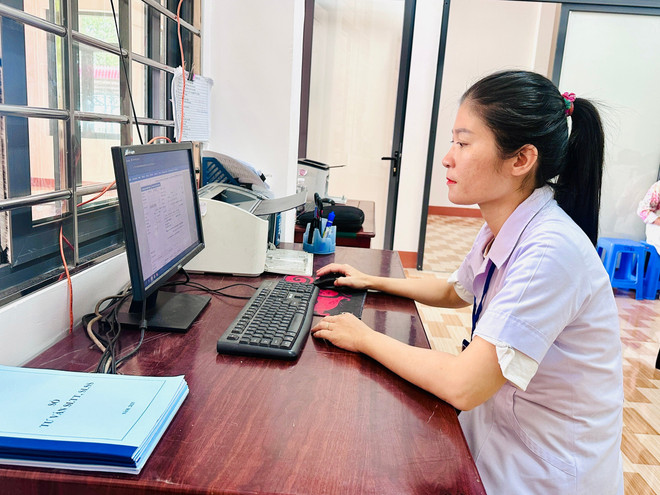
“In particular, the government's policy from 2026, people will be able to have regular health check-ups or free screening at least once a year, will be welcomed by many people. Because in the commune I manage, there are places dozens of kilometers away from the health station, many people do not pay attention to regular health check-ups. Therefore, many people, even though they are sick, are not detected early, and by the time they go to medical facilities, the disease is already severe, leading to very difficult treatment and high treatment costs. Having free regular health check-ups is a great motivation for people to care and pay more attention to their own health and that of their loved ones, reducing the burden of disease as well as medical costs, and I hope that this policy will be implemented soon,” Dr. Loan emphasized.
Dr. Ha Anh Duc - Director of the Department of Medical Examination and Treatment Management (Ministry of Health) said that to achieve the above goal, the Ministry of Health has been urgently implementing life-cycle health management solutions, gradually reducing the burden of medical costs. The Ministry of Health is developing a project to submit to the Government for promulgation of an action plan, which clearly stipulates the content and list of necessary tests and paraclinical tests.
The goal is to design an effective health check-up package, maximizing costs without waste, while creating conditions for everyone to have the opportunity to have regular health check-ups. The estimated cost of the health check-up package is about 300,000 VND/person/year.
Based on estimates, the Ministry of Health took data from 2024, the Health Insurance Fund paid about 140,000 billion VND, patients paid about 21,545 billion VND. If calculated like that, from 2026, the State will have to spend a maximum of 21,545 billion VND/year. Currently, the health insurance balance is about 49-50 thousand billion VND, which can be paid for the first 2 years, after that, we must calculate a roadmap to increase health insurance revenue to gradually balance it.
Regarding the free hospital fee policy, Mr. Duc said that the Ministry of Health is urgently developing an implementation project. This policy must still be based on the pillar of health insurance, and at the same time be implemented with a roadmap. The State and the fund will pay for basic and essential medical expenses, minimizing the financial burden on people, especially for social policy beneficiaries, the disadvantaged, low-income people and some other priority groups. For medical services on demand, exceeding the basic level, patients still have to pay a part to raise awareness of using services reasonably and saving costs.
The Director of the Department of Medical Examination and Treatment Management emphasized that the policy of free hospital fees must be closely linked to universal health insurance coverage, everyone participates in health insurance to share risks, the well-off take care of the poor, the healthy help the weak, along with support from the state budget so that patients do not have to pay extra costs when they unfortunately get sick./.
Source: https://www.vietnamplus.vn/nghi-quyet-so-72-quan-ly-suc-khoe-theo-vong-doi-giam-ganh-nang-chi-phi-y-te-post1063483.vnp



![[Photo] The 1st Congress of Phu Tho Provincial Party Committee, term 2025-2030](https://vphoto.vietnam.vn/thumb/1200x675/vietnam/resource/IMAGE/2025/9/30/1507da06216649bba8a1ce6251816820)
![[Photo] Solemn opening of the 12th Military Party Congress for the 2025-2030 term](https://vphoto.vietnam.vn/thumb/1200x675/vietnam/resource/IMAGE/2025/9/30/2cd383b3130d41a1a4b5ace0d5eb989d)
![[Photo] General Secretary To Lam receives US Ambassador to Vietnam Marc Knapper](https://vphoto.vietnam.vn/thumb/1200x675/vietnam/resource/IMAGE/2025/9/29/c8fd0761aa184da7814aee57d87c49b3)

![[Photo] General Secretary To Lam, Secretary of the Central Military Commission attends the 12th Party Congress of the Army](https://vphoto.vietnam.vn/thumb/1200x675/vietnam/resource/IMAGE/2025/9/30/9b63aaa37ddb472ead84e3870a8ae825)
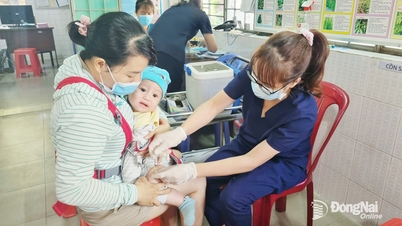




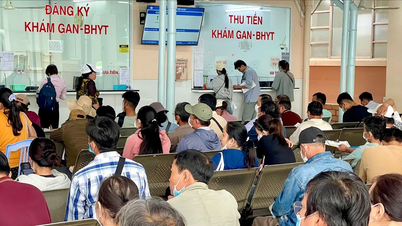






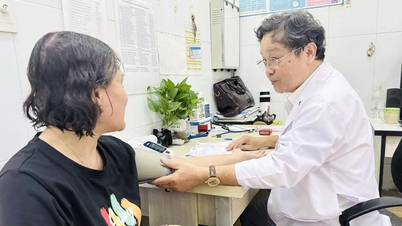

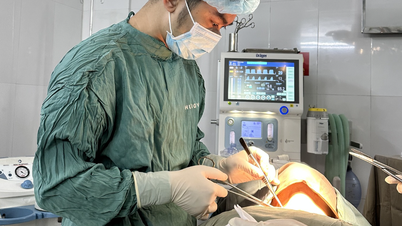
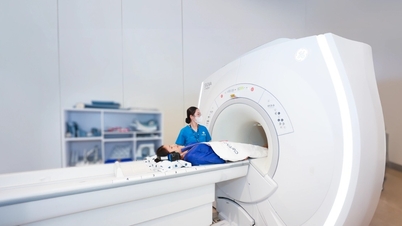






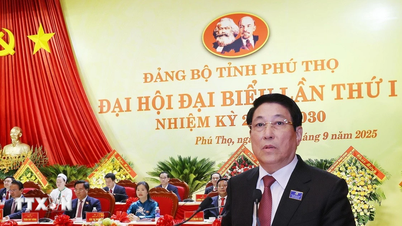

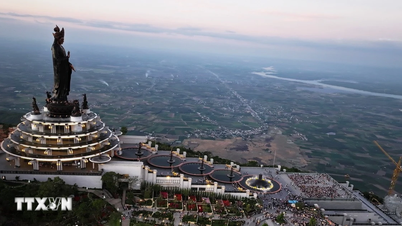
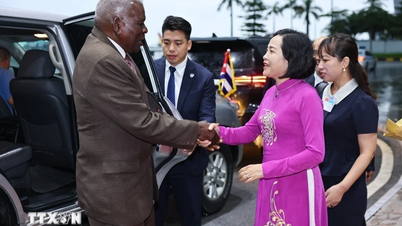


![[Photo] General Secretary To Lam attends the ceremony to celebrate the 80th anniversary of the post and telecommunications sector and the 66th anniversary of the science and technology sector.](https://vphoto.vietnam.vn/thumb/1200x675/vietnam/resource/IMAGE/2025/9/29/8e86b39b8fe44121a2b14a031f4cef46)




































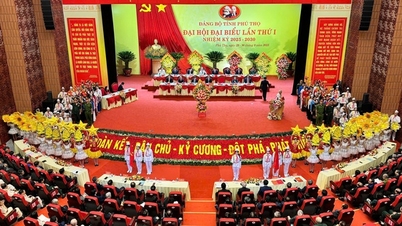
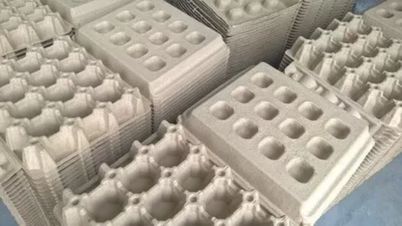
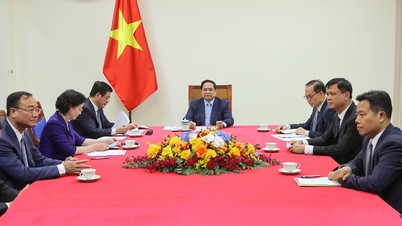




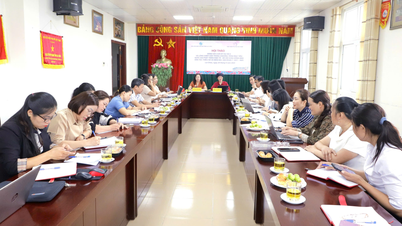
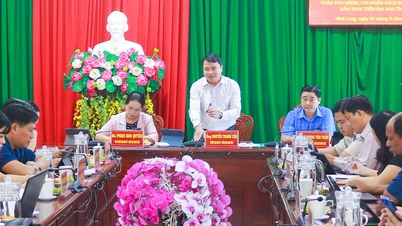

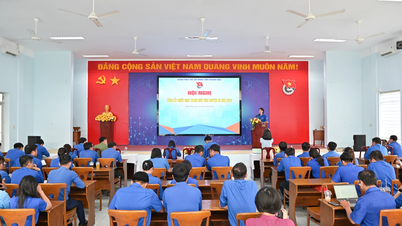
















Comment (0)